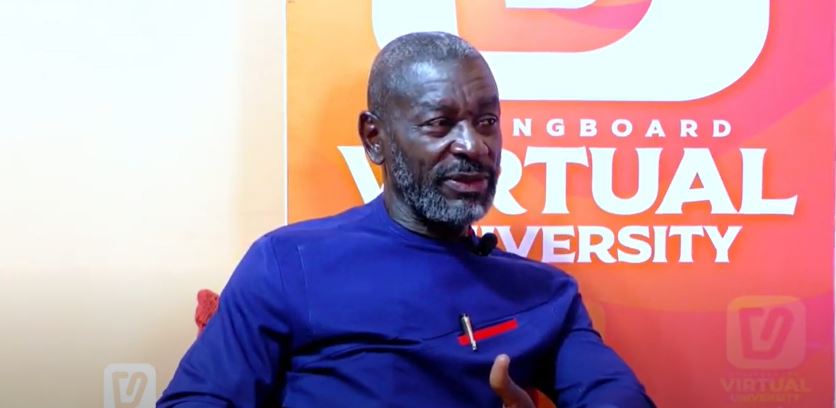Co-founder of the defunct Unique Trust (UT) bank, Prince Kofi Amoabeng, says the disbursement of loans to customers within 48 hours caused a significant change in the performance of the financial institution.
Although people described the move as 'crazy' and unrealistic, Mr Amoabeng said the policy helped UT Bank to gain the respect of many beneficiaries who were enthused about the speed with which they received the loans.
Speaking in an interview on Springboard Virtual University on Sunday, December 12, the retired banker stated that the proposition was experimented before its implementation, adding that it yielded the maximum results.
"I think the loan in 48 hours because that was our biggest unique selling proposition and you see, we are defined by the time we have on earth; when your time is finished, it means you are no more here so people will protect their time and even pay more for their time."
"Before we did put it out there, we had experimented with it and knew we could do our loans, at least 90%, in 48 hours and once you make a commitment to the people, you must actually respond to it, you must commit to it, you just don't put it put there," he said.
The former military officer recounted that the implementation of that service put pressure on him "but the business had consumed me and taken my whole life so I would do what is right and set the tone."
"We had situations where even during board meetings, I will ask the Board to hold on and we sign a document then continue the board meeting because you must stick to the deadline."
Mr Amoabeng touted that the various schemes and policies the bank introduced became the talk of the day as many banks, at the time, planned to adopt same or similar ones to reach many customers.
According to him, "I started UT because I was addressing a problem that I was facing, which I knew a lot of people were facing."
"At first it wasn't right and the banks were doing something wrong. They were not listening to the people, they were not there for the people [and] they didn't love the people."
"I think we gave the banks a run for the money at some point in time because when we were at our peak, every bank was discussing the UT phenomenon," he added.
UT Bank collapsed in 2017 during Ghana’s banking sector cleanup.
It was part of the seven indigenous banks whose licences were revoked by the Bank of Ghana in 2017 and 2018 for being insolvent.
Latest Stories
-
Baltasar Coin becomes first Ghanaian meme coin to hit DEX Screener at $100K market cap
50 minutes -
EC blames re-collation of disputed results on widespread lawlessness by party supporters
1 hour -
Top 20 Ghanaian songs released in 2024
1 hour -
Beating Messi’s Inter Miami to MLS Cup feels amazing – Joseph Paintsil
2 hours -
NDC administration will reverse all ‘last-minute’ gov’t employee promotions – Asiedu Nketiah
2 hours -
Kudus sights ‘authority and kingship’ for elephant stool celebration
2 hours -
We’ll embrace cutting-edge technologies to address emerging healthcare needs – Prof. Antwi-Kusi
2 hours -
Nana Aba Anamoah, Cwesi Oteng special guests for Philip Nai and Friends’ charity event
2 hours -
Environmental protection officers receive training on how to tackle climate change
3 hours -
CLOGSAG vows to resist partisan appointments in Civil, Local Government Service
4 hours -
Peasant Farmers Association welcomes Mahama’s move to rename Agric Ministry
4 hours -
NDC grateful to chiefs, people of Bono Region -Asiedu Nketia
4 hours -
Ban on smoking in public: FDA engages food service establishments on compliance
4 hours -
Mahama’s administration to consider opening Ghana’s Mission in Budapest
4 hours -
GEPA commits to building robust systems that empower MSMEs
4 hours

